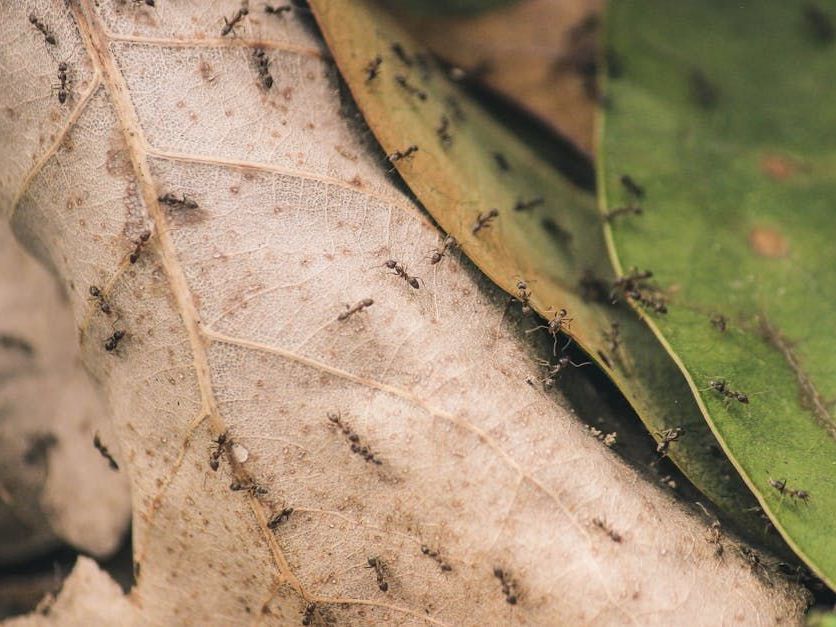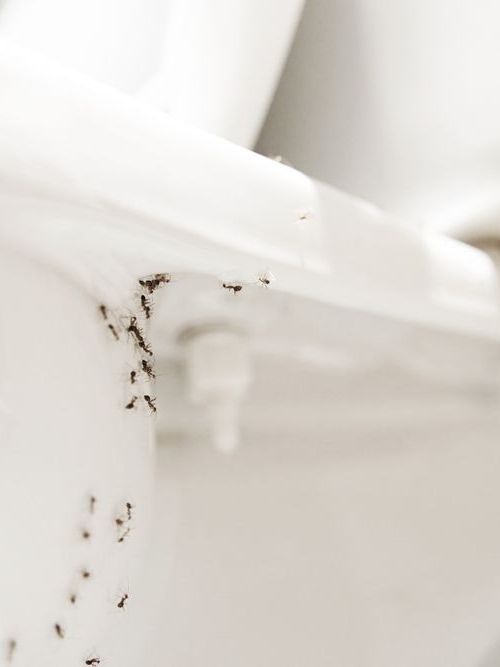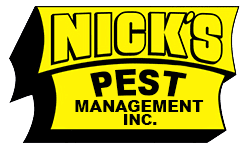Ant Control
Ant's won't stand a chance with our expert control.
Nick's Pest Management, offers comprehensive services to rid your home or business of pesky ant infestations. With our expert team and tailored strategies, we effectively target ant colonies at their source, ensuring long-lasting results. From thorough inspections to environmentally friendly treatment options, we prioritize your satisfaction and peace of mind. Say goodbye to ant troubles with Nick's Pest Management—your local partner in effective pest management.

How do ants get into homes?
Ants can find their way into homes through various entry points, exploiting even the tiniest openings. Common routes include:
- Cracks and Crevices: Openings in walls, floors, foundations, or windows provide easy access for ants.
- Doors and Windows: Unsealed gaps around doors and windows allow ants to enter.
- Utility Lines: Gaps around utility lines such as plumbing, electrical, or cable entry points can serve as entryways for ants.
- Food Sources: Ants are attracted to food residue and crumbs. They may enter homes in search of food through open containers, poorly sealed pantry items, or spills.
- Moisture: Ants are drawn to moisture-rich environments. Leaky pipes, dripping faucets, or areas with high humidity can attract ants indoors.
- Vegetation: Trees, shrubs, or branches touching the exterior of the house can provide ants with a bridge to enter.
- Nesting Sites: Ants may establish nests near the perimeter of the house and then explore indoors in search of food and water.
Regular maintenance, such as sealing cracks, repairing screens, and keeping indoor areas clean and dry, can help prevent ant infestations
How do you get rid of ants?
When it comes to getting rid of ants, it's essential to address both the immediate infestation and the underlying factors that attract them. Here's a professional approach:
- Identification: Proper identification of the ant species is crucial for effective control measures. Different species may require different treatment methods.
- Sanitation: Remove food sources and eliminate access points. Clean up spills promptly, store food in airtight containers, and keep surfaces free of crumbs and residue.
- Sealing Entry Points: Seal cracks, gaps, and openings around doors, windows, and utility lines to prevent ants from entering your home.
- Natural Repellents: Some natural remedies like vinegar, citrus oils, or peppermint can act as temporary deterrents for ants. However, they may not provide long-term solutions.
- Baits: Ant baits are an effective way to control ant colonies at their source. Place bait stations near ant trails and in areas where ants are active. The ants will carry the bait back to the colony, effectively eliminating it.
- Chemical Treatments: In severe infestations, professional-grade insecticides may be necessary. Consult with a pest control professional to determine the most appropriate and safe treatment for your situation.
- Professional Assistance: If the infestation persists despite your efforts, or if you're dealing with a particularly challenging species of ant, seeking help from a licensed pest control professional is advisable. They have the expertise and resources to identify the root cause of the problem and implement effective solutions while ensuring the safety of your home and family.
Remember, consistency is key when dealing with ants. Even after treatment, it's essential to maintain good sanitation practices to prevent future infestations.

Exterminate Worries, Contact Us Today!
Call us at 270-875-8898
Ant FAQ
What are the common signs of an ant infestation?
Look out for trails of ants, particularly near food sources or along walls. Small piles of sawdust-like material, known as frass, may indicate the presence of carpenter ants. Additionally, discovering ant nests or ant activity in and around your home is a telltale sign of an infestation.
How do ants enter homes?
Ants can gain access through tiny cracks and openings in walls, floors, foundations, and around doors and windows. They may also exploit gaps around utility lines or vegetation touching the exterior of the house.
Are there any natural remedies for ant control?
While natural remedies like vinegar, citrus oils, or peppermint can act as temporary deterrents for ants, they may not provide long-term solutions. For effective and lasting control, it's often necessary to use professional-grade baits or insecticides.
What is the most effective way to get rid of ants?
The most effective way to eliminate ants is to target the colony at its source. This often involves using ant baits strategically placed near ant trails or in areas of high activity. The ants will carry the bait back to the colony, effectively eradicating it.
When should I seek professional ant control services?
If you're dealing with a persistent ant infestation that doesn't respond to DIY methods, or if you're unsure about the type of ants you're dealing with, it's best to consult with a licensed pest control professional. They have the expertise and resources to identify the problem and implement effective solutions tailored to your specific situation.

